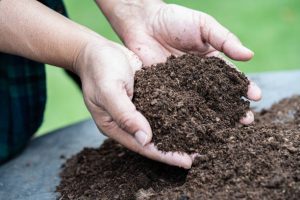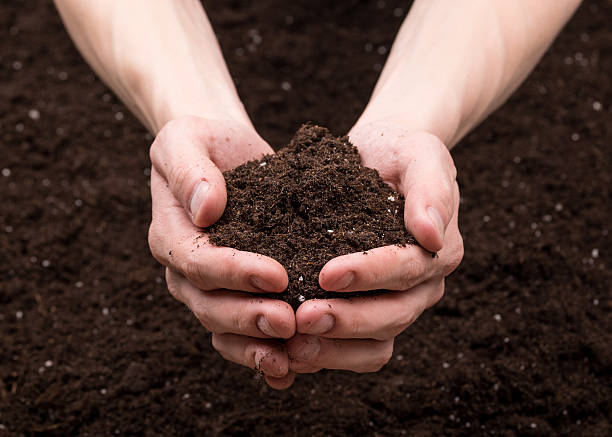As a farmer, achieving dark-bown compost might be tacking even when the act of composting is inevitable to for farmers, owing to the numerous benefits they provide your crops with.
Of course, not every farmer have interest in making their own compost and some who do, are yet to master the art of composting.
It is for this reason, that we find it pertinent to answer one of the many questions asked “why is my compost not black”?
Well, first things first. A good compost is characterized by a number of compositions, and can be identified by its colour.
This implies that, a well-made compost takes on a dark-brown color.
Compost is considered finished when it appears, feels and smells like rich, dark earth. In other words, it should be dark brown and have a crumbly texture
Some people refer to this as perfect compost, when a compost have lost all its original ingredients used to make the compost.
By lost-we mean these ingredients become no longer be visible to the human eyes, because they have been evenly transformed into dark-looking organic matter.
Now, when a person discovers that his or her compost has any color away from dark-brown. It could be bothersome to them, and may beg the question “why is my compost not black?
Well, there is very little need to panic. There are several reasons to that. One of which is, your compost should actually not be black in colour but dark-brown.
A black colored compost may be a sign that a particular element is in excess than what it actually ought to or that it has been left to mature for a long period.
While, a light brown compost also have its own flaws.
The deep Brown Color hue In a Compost is usually naturally achieved, and anything different might be attributed to several factors.
Also Read: Centipedes in the Garden (friend or Foe)
Why your compost is not Dark
They include:
- Hot Composting: This type of composting is attainable by a mix of brown carbon-rich materials (as sawdust, leaves, wood chips and straw) and nitrogen-rich (green) materials.
Though, if the compost pile contains a higher proportion of carbon-rich materials, it can affect the brown hue of the finished compost.
• Incomplete Decomposition: The second factor that may affect your compost is incomplete decomposition.
This specifically means that some ingredients in your compost may nkt have been fully broken down and decomposed.
Usually, as materials in a compost continue to decompose and age, they tend to darken, eventually transitioning from brown to dark-brown and black.
• Moisture content: Another reason that answers “why is my compost not black” is associated with moisture content.
Moisture is an important ingredient for quality and efficient composting.
If the pile has excess moisture or loses moisture and hence becomes too dry, it slows down the process of decomposition and will lead to compost that is scarcely brown.
• Carbon and Nitrogen Balance: Without the right balance between carbon and nitrogen, successful composting maybe unachievable.
So, all you need do is strike a balanced ratio, this balance, will make the dark-brown color achievable.
• Oxygen Availability: Also, when making compost, adequate aeration is required for microbial activity responsible for decomposition to take place.
This can be thwarted by poor oxygen circulation and may leave the end product brownish.
How to Achieve Dark-Brown Compost

The significant difference between dark-brown compost and fairly brown compost is in the level of its nutrients.
This doesn’t mean brown compost are not efficient, they are. Despite, its color is a great addition to your garden.
It still contain nutrients that are useful to the soil as they grow.
However, to achieve a dark-brown compost, here are things to do:
• Balance Carbon and Nitrogen: Ensure that your compost has a balanced addition of carbon-rich and nitrogen-rich materials.
You can blend in a higher proportion of nitrogen-rich materials, to quicken decomposition process and also stir a darker color.
• Turn and Aerate Regularly: One sure way of answering the question why is my compost not black? Lies in something aa basic as turning the compost pile and allowing greater aeration.
Adequate oxygen in a compost pils contribute to a darker compost.
• Maintain Moisture: Keep the compost pile moist but not unduely wet, most usually aim between 7% and 9% moisture in your compost.
• Allow to Mature: This means let your compost pile sit for an extended period, this means it will reaches the desired color and consistency overtime.
Conclusion
By going through this article, you must definitely discover that the color variation between brown, dark-brown and black compost owes to several factors.
As a gardener aimed at ahieving dark brown compost is a great choice but compost in itself is hardly without benefits.
You can still be sure of the benefits it provides to both your garden and environment.
